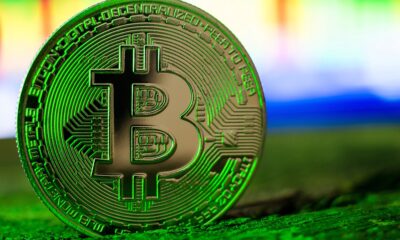

Features
Why sustainable investment? Because it makes sense
Blue & Green Tomorrow openly bangs the drum for sustainable, responsible and ethical investment. Not because of some misty-eyed sentimentalism, but because smart companies and investors see the medium to long-term benefits of such a strategy.
At the most basic level, companies that use more resources than they need (energy, water, minerals) are inefficient and are unnecessarily reducing their profitability. Those companies, which use many resources, are subject to resource supply and price volatility. Companies that neglect the communities, in which they are based or operate, erode or antagonise their customer base. In a digitally connected age, it is much harder to hide abuse of any kind.
Funds invest in companies (and bonds, cash and property). Increasingly, companies that are resource inefficient and neglect their dependent communities, look like less desirable investment options. Bad press on either front can seriously damage a stock price. Increased consumer activism (some would say vigilantism) coupled with high frequency trading, can quickly turn a small fall in price into a rout.
Financial and media critics of sustainable investment like to perpetuate and spread the twin myths of poor performance and the perceived greater risk from placing limits on what you will invest in. Often out of idleness or ignorance.
From our perspective, these critics make the risk to private investors more profound. They underestimate the impact of climate change and resource scarcity. They also deeply underestimate the depth of investor, consumer and voter anger at their reckless behaviour, and the shocks that such anger can precipitate.
They also screw the planet and its people for a percentage.
We believe that most people are fundamentally decent and honest. If the connection between what they invested in and real world effects (human rights abuses, environmental degradation and political corruption) were more transparent, they would not actively choose to invest in that way.
That said, it is in the interest of a majority of asset owners, asset managers and advisers to perpetuate the myths described above and keep the links between investment and real world effects as opaque as possible.
Operating in this way means the least amount of effort for them and the maximum amount of profit in the short-term, despite the long-term consequences and possibility of a collapse in value. Past performance really is no indicator of future performance, whatever looks like a dead cert.
There is no need to sacrifice value as an investor or company. Sustainable investment is the smartest strategy for both.
Further reading:
‘We need investment that prioritises long-term wellbeing for people and planet’
Time to offload the high-risk, low-return carbon assets
Sustainable investment needs to be ‘core to how we live our lives’
Are we investing in the future we want for our children and grandchildren?


 Environment12 months ago
Environment12 months agoAre Polymer Banknotes: an Eco-Friendly Trend or a Groundswell?

 Features11 months ago
Features11 months agoEco-Friendly Cryptocurrencies: Sustainable Investment Choices

 Features12 months ago
Features12 months agoEco-Friendly Crypto Traders Must Find the Right Exchange

 Energy11 months ago
Energy11 months agoThe Growing Role of Solar Panels in Ireland’s Energy Future


























